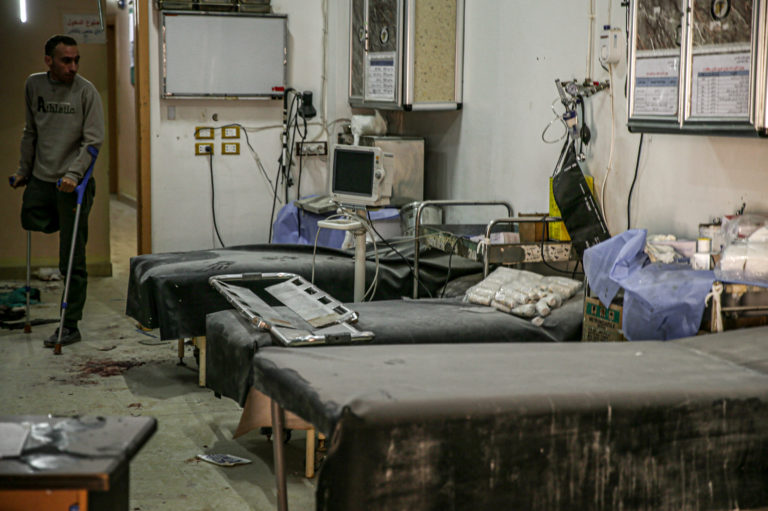How to prevent and manage Vandalism at your hospital?
Vandalism is a crime that can happen anywhere, at any time. It involves the intentional destruction or damage of property without permission. Unfortunately, it’s becoming more and more common in today’s society. Vandalism can cause emotional and financial distress for individuals and businesses alike.
One place where vandalism has become a particular problem is hospitals. Hospitals are open 24/7, making them vulnerable to vandals who may take advantage of the quiet environment during off-hours. Vandalism in hospitals not only causes significant property damage but also puts patients’ safety at risk. Broken windows, graffiti on walls, stolen medical equipment – all these things pose a threat to hospital staff and patients.
It’s essential for hospital administrators and property owners to take steps to prevent vandalism from happening in the first place.

Prevention Measures
Prevention is the first step in protecting against vandalism in hospitals. Hospitals should conduct regular security assessments to identify vulnerabilities and implement measures to deter potential vandals. These measures may include increasing the presence of security personnel, installing security cameras and alarms, and implementing access controls to restrict access to certain areas of the hospital.
Here are some measures that can be taken to protect hospital property against vandalism:
Install Security Cameras
Security cameras are an effective way to deter vandals and to capture evidence of any vandalism that does occur. They can be placed in strategic locations around the hospital to monitor high-risk areas, such as entrances, exits, and parking lots. The presence of security cameras can also make vandals think twice before targeting the hospital.
Secure the Perimeter
A secure perimeter is the first line of defense against vandals. Fences, gates, and barriers can be installed around the hospital to prevent unauthorized access. These can be made from sturdy materials such as metal or concrete to deter vandals from attempting to break through.
Use Lighting to Deter Vandals
Vandals are more likely to target areas that are poorly lit. Therefore, it is essential to install adequate lighting around the hospital’s exterior to deter vandals. Motion-activated lights can also be installed to alert security personnel of any suspicious activity.
Train Staff on Vandalism Prevention
Hospital staff can play a crucial role in preventing vandalism. By educating them on the risks and warning signs of vandalism, they can be more vigilant and report any suspicious activity immediately. Staff should also be trained on how to respond to a vandalism incident to ensure the safety of patients and staff.
Partner with Law Enforcement
Hospitals can partner with law enforcement to create a plan for preventing and responding to vandalism incidents. Law enforcement can provide training on identifying and responding to vandalism incidents, as well as advice on security measures that can be implemented.
Hospitals should also consider implementing a community policing program to build relationships with local residents and organizations and to encourage them to report suspicious activity. This can help to create a sense of community ownership of the hospital and discourage potential vandals from targeting the facility.
It is also important to remove any items from your property that could be used for vandalism. This includes anything from loose bricks to graffiti-making materials. If any of these items are found on your property, it is important to remove them promptly.
Manage Vandalism with Omnipolis
Another important step is to create a clear and visible “no-vandalism” policy for your property. Make sure signs or other visible reminders of the policy are posted on your property. You can also post contact information of the local police department or other law enforcement agency in case of vandalism.
Vandalism causes loss of 235,062,000,000/- to the Healthcare industry every year in india. Omnipolis has helped around 850+ establishments and managed vandals by attending 1800+ over the last decade. Omnipolis is a real-time Emergency Hotline Service in a public-private partnership with the telangana state police. It takes care of the complete security and emergency of a subscriber such as police, fire and bomb. In an emergency, these services drastically reduce the loss of life and property. Every organization should and needs to have emergency measures in place to make sure that business continuity can be achieved quickly, as well as to ensure minimum loss to the organization and individual. We have saved over 209 Lacs worth of property and over 10 lives by attending Police and Fire emergencies in a timely fashion over the last 10 years.
In addition to these preventative measures, hospitals should also have a response plan in place to address vandalism incidents as they occur. This plan should include procedures for contacting the police and other emergency services such as Omnipolis, as well as guidelines for staff to follow in the event of a vandalism incident.
Once a vandalism incident has occurred, hospitals should take immediate steps to assess the damage and secure the affected area. This may include shutting down access to the affected area, and moving patients and staff to safe locations.
Post Vandalism Measures
Hospitals should also take steps to mitigate the damage caused by the vandalism. This may include cleaning up debris, repairing broken windows and other damaged property, and restoring power and other essential services.
Hospitals should also consider implementing measures to restore normal operations as quickly as possible. This may include redirecting patients to other facilities, or providing temporary housing for staff and patients.
The cost of vandalism in hospitals can be significant, including repairs, lost revenue, and increased insurance premiums. Hospitals should document all costs associated with vandalism incidents and work with insurance companies and other stakeholders to recoup those costs.
In conclusion, vandalism in hospitals can cause significant damage to property, disrupt operations, and put patients and staff at risk. It is essential for hospitals to have a plan in place to prevent and respond to vandalism, as well as to mitigate the damage and costs associated with it. This can be achieved through regular security assessments, community policing programs, and well-designed response plans. By taking proactive measures to prevent and respond to vandalism, hospitals can protect their property and ensure the safety and well-being of patients and staff.
